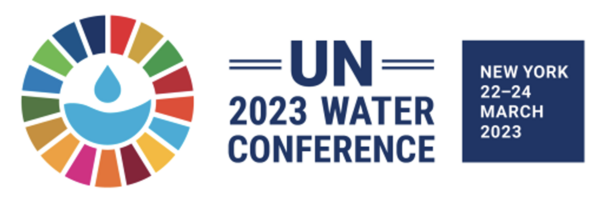
Three key ideas of the New York Conference
A publication entitled "The water crisis does not stop in New York" is a summary of the first Water Conference in 46 years, which took place on 22-24 March at the UN Headquarters. Global water management issues were discussed by 10,000 delegates from around the globe.
The solutions proposed by ecohydrologists from Lodz were mentioned by the authors of the article in "Nature" as one of the three ideas that have a special impact on the radical change of the current view, way of thinking and activities in the field of ecohydrology. "Nature-Based Solutions" have been developed under the UNESCO’s Intergovernmental Hydrological Programme. They include nature-based ecohydrological solutions, implemented in close cooperation with the local communities, persevering the harmonious relationship between humans and nature, which is the solution for sustainable water management.
According to the authors of the article in Nature, the other two key ideas that should influence ecohydrological activities are:
- the necessity to coordinate the climate and water actions as rational water management will play an essential role in climate change mitigation and adaptation. Climate change is, however, far from being the only cause of the water crisis. The decades-long mismanagement of the world’s water resources has led to their depletion and to an impact on the water cycle itself.
- the necessity of involving in the decision-making processes those groups that can potentially be most affected by the water crisis, namely youths, women, and Indigenous populations. Young people are the ones whose lives will be affected most from water challenges in the future. Women, especially in lower-income countries, are hugely affected by the lack of water and sanitation infrastructure. Finally, Indigenous people tend to be generally excluded from the administration of those same water resources that are fundamental to the existence of their communities.
UNESCO Chair on Ecohydrology and Applied Ecology at the University of Lodz
During the conference, the European Regional Centre for Ecohydrology of the Polish Academy of Sciences and the UNESCO Chair on Ecohydrology and Applied Ecology at the University of Lodz, in cooperation with the Polish Ministry of Infrastructure, prepared one of the sessions. Nature-based solutions, one of the most development directions of water management were its main topic.
The UNESCO Chair of Ecohydrology and Applied Ecology at the University of Lodz derives from the Department of Applied Ecology operating at the Institute of Ecology and Environmental Protection since 1990. It obtained the UNESCO Chair status in 2019 and since 1 January 2020, it has been operating under its current name.
Research conducted at the unit focuses on the integrated strategy of sustainable river basin management, with particular emphasis on the implementation of the Water Framework Directive of the European Union. The research interests of the employees of the UNESCO Chair are, among others, ecohydrology, ecological biotechnologies, adaptation to climate change, water quality assessment and early warning systems. The unit closely cooperates with research units around the world. It implements numerous eco-hydrological projects together with them or independently.
Source: "Nature", the UNESCO Chair of Ecohydrology and Applied Ecology at the University of Lodz
Edit: Marcin Kowalczyk, Communications and PR Centre, University of Lodz
